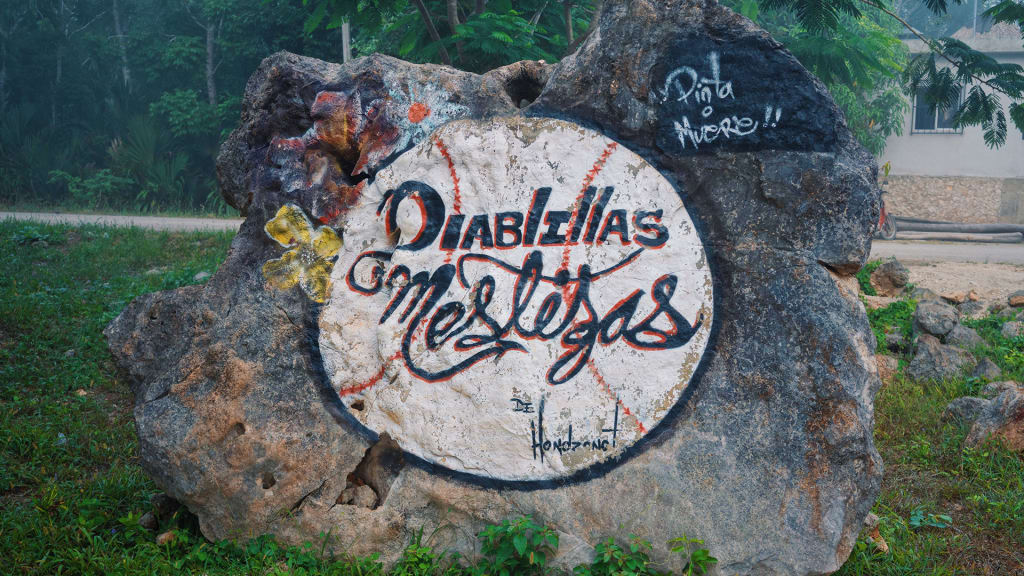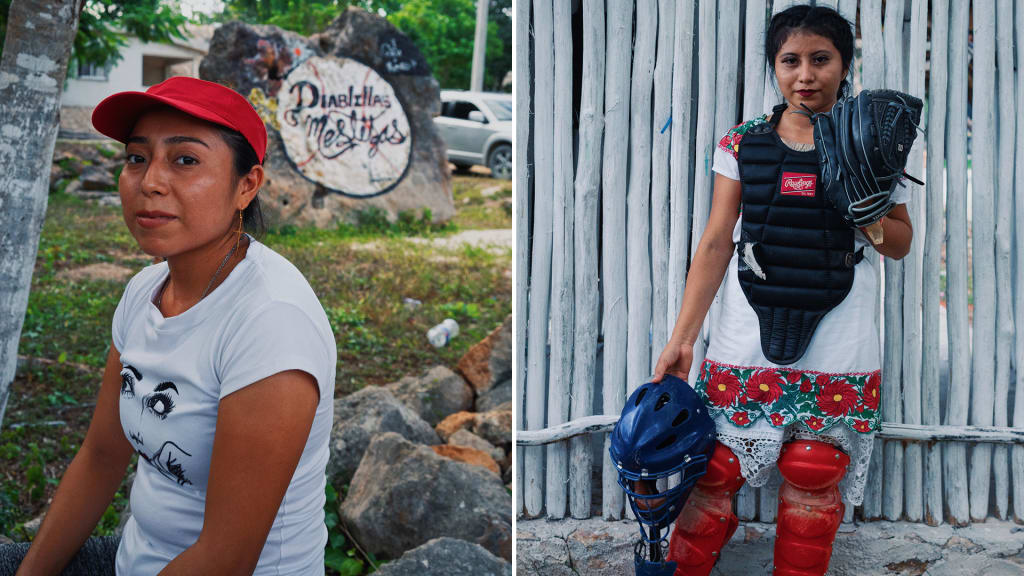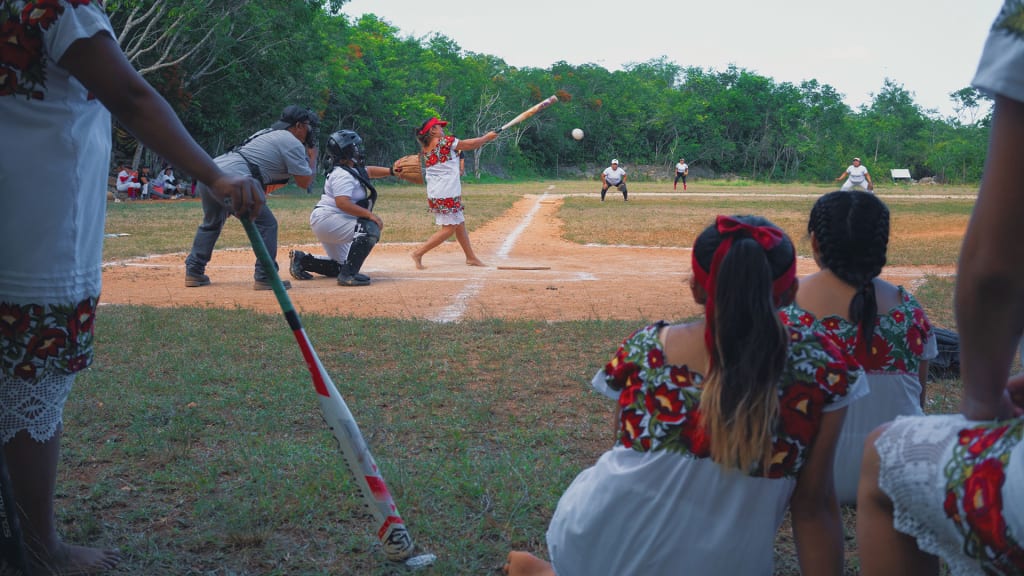They call themselves Las Diablillas -- Little Devils. They are mothers and wives, sisters and daughters. Pillars of their community in Hondzonot, a small Maya town in the Mexican state of Quintana Roo, they are cooks and seamstresses, farmers and herders. And, as of a few years ago, these indigenous women have also become famous across Mexico as softball players who are consciously and deliberately defying gender norms with every swing, every slide, every throw.
That’s because playing sports isn’t considered part of a woman's life in their traditional Maya culture. In fact, it’s often frowned upon. That’s something they hoped to change by forming a softball team, Las Diablillas, which has given women of all ages in their sweltering corner of the Yucatan Peninsula an opportunity to bond as friends, to stay physically active and to add a dimension to their identities.
“The question isn’t, ‘Who will give me permission?’ It’s, ‘Who’s going to stop me?’” says Geimi Santa Ofelia May Dzib, the team's left fielder, in the opening scenes of MLB Originals' latest short film, “Las Diablillas,” which explores how these women have found empowerment through sport.

The film, which can be streamed at mlb.com/originals, shows the women in action and also offers a glimpse into how Las Diablillas make the hipils -- traditional dresses worn by indigenous women in Mexico and other parts of the Americas -- that serve as their uniforms and speak to their pride in their heritage. Each hipil is elaborately embroidered with flowers to represent the diverse flora of the region. Footwear is not required; the Diablillas play barefoot.
“Here in Hondzonot, the ground is red and hot, but we have the habit of being barefoot,” says Jerónima May Uh, who plays third base. “This way we walk faster. We like to feel the hot land on our feet.”
The film’s director, Yupi Segura, opted to interview the women in their native Maya, one of the dozens of indigenous languages spoken in Mexico.

“It was important to tell the story from a community perspective, through the team’s voice, and not just one or two,” Segura said, adding, “Having them speak in their native tongue on camera created a more comfortable environment and allowed them to express their thoughts and ideas in a more fluent way. This was important in order to have an authentic portrait of their lifestyle and story.”
Every team, of course, needs an opponent. Las Diablillas often play another team of indigenous women from the region, the Amazonas de Yaxunah. And no matter what the score is at the end of the game, each of these athletes walks away a winner.
“We are on the same team with future generations,” says Juana Ay Ay, the team’s captain and center fielder, “because we now opened a door that they can walk through to shine.”

